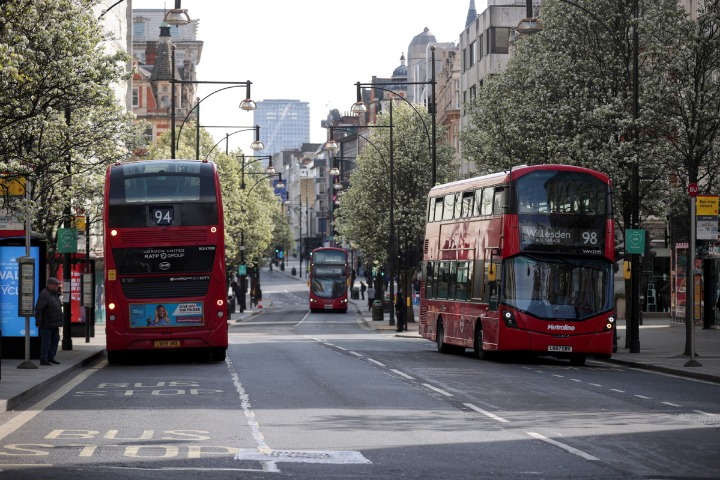Britain needs to reinstate tax refund as Chinese tourists turning away: Experts
Britain is losing its competitive edge as a prime shopping destination for Chinese tourists because of its removal of the tourist tax refund policy, which previously incentivized Chinese visitors to shop there.
The downward trend was evident during China”s recent Golden Week holiday, as more Chinese tourists traveling to Europe chose to explore shopping destinations, including France, Italy and Spain, instead of the UK.
The reason, experts said, is that Chinese tourists want more favorable pricing and the opportunity to get tax refunds in other European countries.
During China’s National Day holiday week, which ran from Sept 29 to Oct 6 and which is also known as the Golden Week, Dong Yamin, a 47-year-old from Hangzhou, East China’s Zhejiang province, traveled to the UK and Italy. Surprisingly, instead of shopping in London, she indulged in a luxurious spending spree in Italy, where she spent 40,000 yuan ($5,479) on items, including a Gucci bag and a pair of Prada sunglasses.
While exploring luxury stores in London and the surrounding area, including the famous Bicester Village, Dong could not help but compare prices with those in Italy and said purchasing luxury goods in Europe was a much better deal.
“The prices in Italy were significantly lower, and I could also enjoy a tax refund of 10 to 12 percent, making it a no-brainer to shop on the continent instead of in Britain,” she told China Daily. “This was my sixth visit to the UK due to family and friend connections. Previously, I had spent between 4,000 and 5,000 pounds ($4,922-$6,153) on shopping here and received approximately 500 to 600 pounds in tax refund, which is equivalent to a high-end suitcase. Now, shopping in London seems much more expensive without a tax refund.”
According to a report conducted by the Association of International Retail, or AIR, the UK is losing out on 750 million pounds per year in spending by Chinese tourists due to the tourist tax program. The decision in 2021 to cut VAT-free shopping for overseas visitors has led high-spending Chinese tourists to choose nations where such initiatives are still available.
James Kennell, head of the Department of Hospitality and Events at the University of Surrey, pointed out that the UK is undeniably losing its competitive edge in retail tourism, as well as in various other forms of tourism.
“This is the result of many years of neglect and underinvestment in the UK’s tourism industry by the government while other countries, such as France and Ireland, have worked hard to increase their attractiveness to high-spending international tourists,” he said.
‘More expensive’
Paul Barnes, CEO of AIR, said the UK has a prestigious reputation as one of the world’s leading shopping destinations and that Chinese visitors, in particular, exhibit a strong preference for shopping in the UK, drawn to renowned locations including the bustling West End of London and the capital’s exclusive Knightsbridge, as well as the Bicester Village.
“But now we have to add a 20 percent tax, which previously was not applied, making them more expensive for tourists,” he said. “We know Chinese visitors are very price-sensitive, so we are challenging the government’s decision to end tax-free shopping for all international visitors following Britain’s departure from the EU.”
According to VisitBritain, in 2019, the UK received more than 880,000 visitors from China. On average, these travelers stayed for 16.33 nights and each person spent around 1,937 pounds.
Jonathan Reynolds, an associate professor in retail marketing at Saïd Business School, Oxford University, said some EU countries offer more seamless and less complex logistics, as well as better incentives, to Chinese tourist groups compared to the UK. The fact that duty-free shopping for overseas visitors to the UK was not reinstated following the pandemic added a further disincentive for tour groups, Reynolds said.
“Chinese tourists, like other international tourists, have multiple reasons for choosing to visit the UK, including its rich heritage and history,” he said. “Nevertheless, shopping, particularly in discount luxury outlet centers, has traditionally provided an additional draw. Of course, businesses like Bicester Village are also now trading in China and so tourists have local comparators.”
A newly launched report by the World Travel and Tourism Council showed that travelers from the Chinese mainland spent more on shopping than individuals from other markets, spending an average of $1,350 per person.
Michel Phan, a professor of luxury marketing at Emlyon Business School, said: “It is very unwise to miss out on the Chinese and other tourists’ shopping money. That represents millions of pounds every year. In the current economic climate, every pound counts.”

